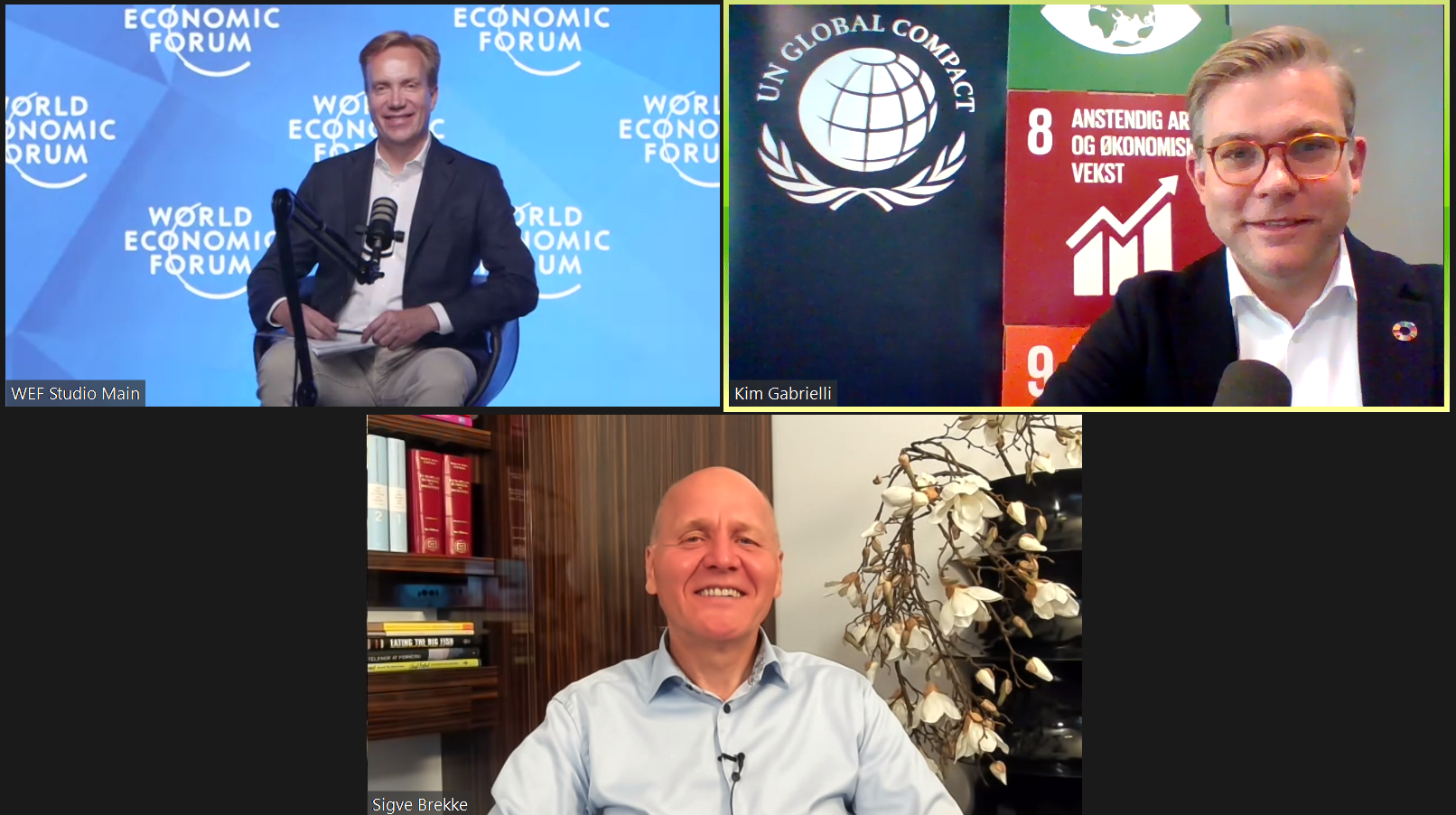CONNECTIVITY: THE PERFECT STORM
Digital is the new normal, and connectivity is the baseline of all services in the future of business. Connectivity will revolutionise business, and we’re on the cusp of a fourth industrial revolution, argues Børge Brende of the World Economic Forum and Telenor-CEO Sigve Brekke.
“Connectivity used to be connecting people together. Today and tomorrow connectivity is much more: it is connecting everything together.”
Sigve Brekke is not daydreaming of a distant future. As CEO of broadband giant Telenor, Brekke is describing the effects of combining three technologies that make up more than the sum of their parts: the Internet of Things, 5G and artificial intelligence.
“At Telenor, we call the digital future ‘the perfect storm’. When everything is connected to the Internet of Things, and you get that powered by 5G – with the ability to connect devices, machines, new industries, and on top of that creating lots of data – we can use artificial intelligence, and the combination will change the way we look at connectivity. It is going to change the way we look at how products are being produced, how services are being delivered, both in the public and private sector. So connectivity is the base for this digital revolution that is coming,” Brekke says.
THE ELECTRICITY OF THE 21ST CENTURY
“For me, broadband is the electricity of the 21st century. You know how transformative it was in the 20th. This is why countries are allocating so much money for this,” Børge Brende states.
New technologies will revolutionise how we work and live. The coming 5G upgrade entails far more than better internet on smartphones, such as with the development of 3G or 4G.
“5G allows you to go into much more specific business models. Together with Yara we have built the first fully automatic vessel crossing the Oslofjord. It’s a fully automatic experience, taking trucks off and on. You need 5G with dedicated slots in the network to be able to do that,” Brekke says.
“Another example is the salmon industry. Salmon farms can be taken way out at sea, and that farm can be managed completely automatically. These solutions are where the growth is going to come. It’s not just about giving more speed and data in the network for consumers,” he continues.
BIG DATA: THE OXYGEN IN THE ECONOMY
Heightened connectivity will usher in the fourth industrial revolution.
“All the challenges that we are faced with require more collaboration, such as public-private cooperation. Big data is the new oxygen in the economy. Companies or countries on top in technologies relating to the fourth industrial revolution will be the most successful and prosperous moving forward,” Brende says.
“In the last decade, we’ve seen how tech companies are the 7 out of 10 largest by market cap. You know the world has changed when Netflix is more worth on Wall Street than ExxonMobil. Things are changing and connectivity is a core part of it“, he continues.
These emerging markets will be dominated by very consequential companies – companies that aren’t yet founded.
“Companies doing well today don’t necessarily do well in ten to twenty years. In the new areas, such as education, health care, AI, transportation, machine learning, many of these companies don’t even exist yet. It will change very fast,” Brende notes.
SKIPPING TWENTY YEARS INTO THE FUTURE
While connectivity certainly will foster new business models and markets, it has important implications for inclusion and coverage of services as well.
“True connectivity is when younger people across the world get access to a phone, in areas where they don’t even have access to a library today,“ Brende says.
Incorporating people that don’t have access to connectivity services today will be a challenge, but Sigve Brekke is optimistic.
“There are no business models to build physical banks in Bangladesh. There is no money to build hospitals or schools in every village. You have to do it all digitally. In these markets you can leapfrog twenty years of development in the Western world,” the Telenor chief explains.
“With connectivity you can change the financial inclusion in the world, not being overdependent on traditional banks. You can change the medical sector, independent of physical hospitals and doctors. In education, you don’t need a classroom – you can have education online. This way it solves issues of social inclusion as well,” he continues.
Firms that want to tap into the potential of connectivity need to couple their business strategy with sustainability goals if they are to compete among the industry leaders.
“Companies that want to be successful need to recruit the best talent. The best talents want to work for companies that are also about more than profit. Both diversity and inclusion in their local community, but also to show leadership globally on sustainability issues,” Brende says.
Learn more on our podcast here, or wherever you listen to podcasts. Make sure you subscribe, so you don’t miss out on next week’s episode.




